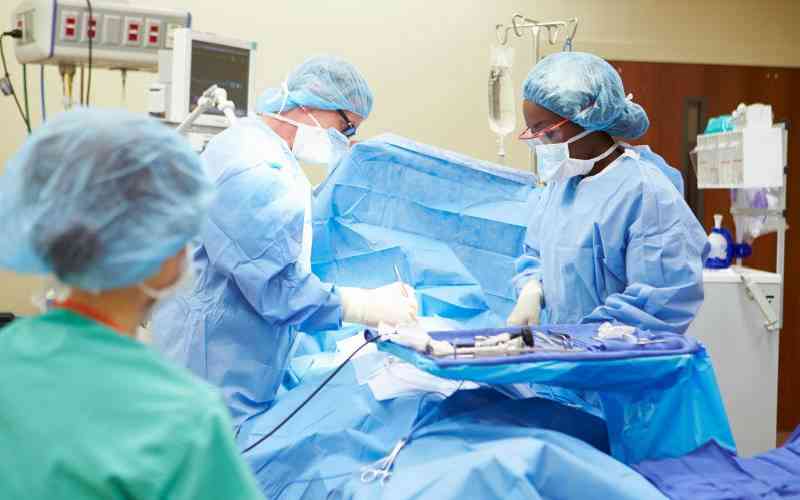The High Court has ordered Aga Khan Hospital to pay a patient Sh157 million for medical negligence in a judgment that sets a new benchmark on failure to offer quality medical care.
Justice Alexander Muteti, in his judgment regarding a woman codenamed N.Q., found that the hospital was liable for permitting Dr Raffique Parker to treat her, despite being aware that he had been disbarred from practising in Uganda.
He awarded NQ Sh7.2 million as special damages, followed by Sh30 million for the loss of her cervix, Sh40 million for the loss of intangible benefits of a spousal relationship and Sh20 million as compensation for the loss of amenities.
He also directed that she be paid Sh10,000 for pain and suffering, Sh20 million for loss of earning capacity, and Sh30 million for loss of society and services.
The judge observed that there was evidence that Dr. Parker, a consultant gynaecologist, was supposed to remove NQ’s ovaries and uterus, but he also removed her entire womb without consent.
“The third defendant (Aga Khan) owed the first plaintiff a duty of care as a patient in their facility and that duty was breached by allowing the first defendant to practice in the said hospital knowing too well that the first defendant had been disbarred from practice in Uganda,” said Justice Muteti.
READ: Hospital ordered to pay Sh23m for birth mishap
NQ’s story with the hospital started in October 2005 when she sought reproductive organs medical care. In her case, which has been in the corridors of justice for 19 years, she explained that the gynaecologist was aware of what was supposed to be done to her reproductive organs. Still, he instead conducted a hysterectomy, a procedure meant to remove the entire womb.
The woman asserted that the form she was given was also clear that Dr Parker was supposed to remove the uterus and ovaries by opening her abdomen. Instead, she narrated that he removed everything, including her cervix.
She testified that since the removal of the cervix, she had not been able to satisfy her husband sexually as she used to before the operation.
The court heard that NQ was in the Aga Khan on or about September 13 and 16, 2006, for the operation.
She explained that she later learned that she had Pelvic Endometriosis. In this condition, tissue similar to the lining of the uterus (endometrium) grows outside the uterus, primarily within the pelvic region as a result of Parker’s negligence.
According to her, he presented himself as a qualified consultant gynaecologist who was able to offer the specialised treatment that she sought.
At the same time, the court heard that after the operation she felt extreme pain in her private parts and the urine could leak even on the sofa seat and all the places she would sit and or stand.
Stay informed. Subscribe to our newsletter
ALSO READ: Landmark ruling against Agha Khan Hospital sets precedent in Birth control cases
QN said that she was diagnosed with a fistula and had to undergo a second operation. She narrated that as the issue persisted, she had to seek medical help in South Africa, where she learnt that a fistula had developed as a result of scarring of the bladder.
Parker, in his reply, said that NQ had her fallopian tube previously removed for an ectopic pregnancy. He said that she came to him complaining of lower abdominal pain on the right side.
According to him, an examination of her abdomen showed that she had other scars.
He further asserted that he held the necessary qualifications as a consultant gynaecologist and was therefore competent to handle NQ.
The medic blamed any complications that arose from her long history of endometriosis, which he said no doctor can cure 100 per cent. He, however, admitted that he recommended the removal of her uterus and the right ovary and any residual endometriosis.
He also said that the removal of the cervix was done with her full knowledge, as he had allegedly explained he was to perform a total hysterectomy.
The hospital said that Dr Parker was not its employee, but he had admitting privileges. It maintained that the doctor would remain responsible for the patient. It denied that its staff were incompetent or negligent, adding that it offers the best care to its patients.
























